
-

AAA NiMH Rechargeable Battery (400 mAh)
$2.69As low as:- Buy in bulk and save
Bulk discount rates
Below are the available bulk discount rates for each individual item when you purchase a certain amount
- Buy 2 - 14 and pay only $2.69 each
- Buy 15 - 27 and pay only $2.59 each
- Buy 28 - 55 and pay only $2.49 each
- Buy 56 - 185 and pay only $2.29 each
- Buy 186 - 371 and pay only $2.09 each
- Buy 372 or above and pay only $2.09 each
-
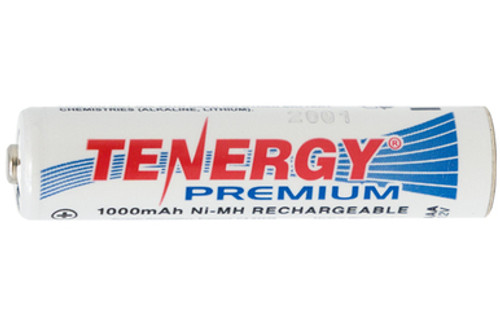
-
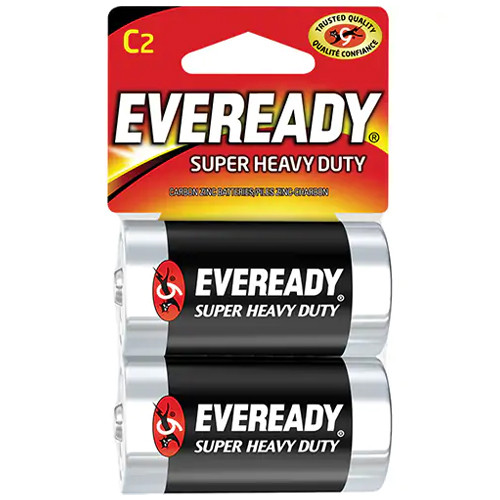
-

-
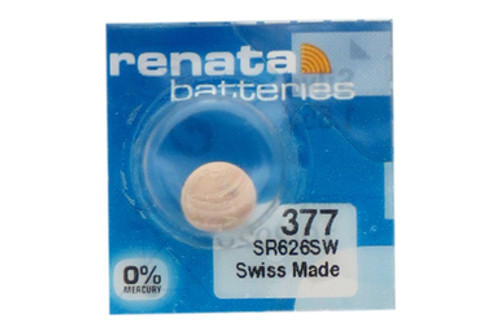
377 / SR626SW Renata Silver Oxide Button Batteries
$2.89As low as:- Buy in bulk and save
Bulk discount rates
Below are the available bulk discount rates for each individual item when you purchase a certain amount
- Buy 2 - 10 and pay only $2.89 each
- Buy 11 - 20 and pay only $2.29 each
- Buy 21 - 30 and pay only $2.19 each
- Buy 31 - 50 and pay only $1.99 each
- Buy 51 or above and pay only $1.99 each
-

-
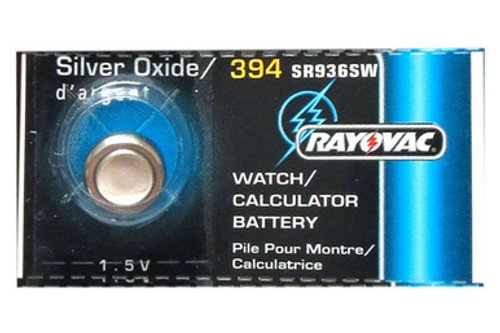
394 / SR936SW Rayovac Silver Oxide Button Battery
$2.89As low as:- Buy in bulk and save
Bulk discount rates
Below are the available bulk discount rates for each individual item when you purchase a certain amount
- Buy 2 - 18 and pay only $2.89 each
- Buy 19 - 36 and pay only $2.59 each
- Buy 37 - 60 and pay only $2.49 each
- Buy 61 or above and pay only $2.49 each
-

-

-

-

Panasonic Industrial CR123A 3 Volt Lithium Battery (CR17345)
$2.89As low as:- Buy in bulk and save
Bulk discount rates
Below are the available bulk discount rates for each individual item when you purchase a certain amount
- Buy 2 - 7 and pay only $2.89 each
- Buy 8 - 11 and pay only $2.59 each
- Buy 12 - 23 and pay only $2.49 each
- Buy 24 - 99 and pay only $2.29 each
- Buy 100 - 249 and pay only $2.19 each
- Buy 250 - 399 and pay only $2.09 each
- Buy 400 - 799 and pay only $1.99 each
- Buy 800 - 1199 and pay only $1.89 each
- Buy 1200 or above and pay only $1.89 each
-
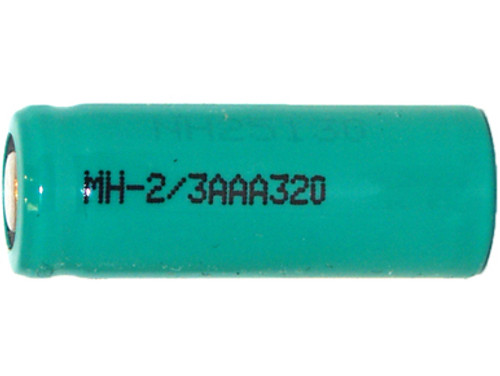
2/3 AAA NiMH Flat Top Battery (320 mAh)
$2.99As low as:- Buy in bulk and save
Bulk discount rates
Below are the available bulk discount rates for each individual item when you purchase a certain amount
- Buy 2 - 21 and pay only $2.99 each
- Buy 22 - 53 and pay only $2.69 each
- Buy 54 - 89 and pay only $2.59 each
- Buy 90 - 358 and pay only $2.49 each
- Buy 359 or above and pay only $2.49 each
-

-

A Sanyo (KR-1700AU) NiCd Flat Top Battery (1700 mAh)
$2.99As low as:- Buy in bulk and save
Bulk discount rates
Below are the available bulk discount rates for each individual item when you purchase a certain amount
- Buy 2 - 20 and pay only $2.99 each
- Buy 21 - 50 and pay only $2.79 each
- Buy 51 - 83 and pay only $2.69 each
- Buy 84 - 334 and pay only $2.59 each
- Buy 335 or above and pay only $2.59 each
-

AA NiMH Rechargeable Battery (600 mAh)
$2.99As low as:- Buy in bulk and save
Bulk discount rates
Below are the available bulk discount rates for each individual item when you purchase a certain amount
- Buy 2 - 12 and pay only $2.99 each
- Buy 13 - 25 and pay only $2.79 each
- Buy 26 - 50 and pay only $2.69 each
- Buy 51 or above and pay only $2.69 each
-

AA Rayovac 1350 mAh NiMH Battery
$2.99As low as:- Buy in bulk and save
Bulk discount rates
Below are the available bulk discount rates for each individual item when you purchase a certain amount
- Buy 2 - 25 and pay only $2.99 each
- Buy 26 - 83 and pay only $2.69 each
- Buy 84 - 167 and pay only $2.59 each
- Buy 168 - 334 and pay only $2.49 each
- Buy 335 or above and pay only $2.49 each
-

AAA NiMH Battery (900 mAh)
$2.99As low as:- Buy in bulk and save
Bulk discount rates
Below are the available bulk discount rates for each individual item when you purchase a certain amount
- Buy 2 - 14 and pay only $2.99 each
- Buy 15 - 26 and pay only $2.69 each
- Buy 27 - 53 and pay only $2.59 each
- Buy 54 - 179 and pay only $2.39 each
- Buy 180 - 358 and pay only $2.19 each
- Buy 359 or above and pay only $2.19 each
-
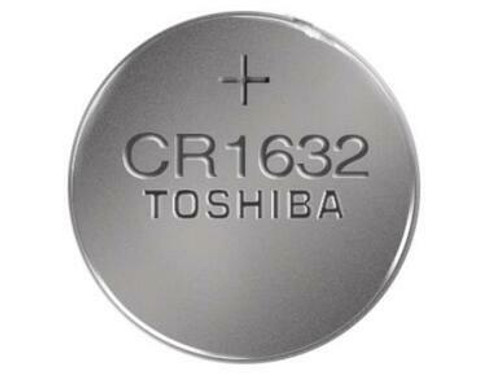
CR1632 Toshiba 3 Volt Lithium Coin Cell Battery (On a Card)
$2.99As low as:- Buy in bulk and save
Bulk discount rates
Below are the available bulk discount rates for each individual item when you purchase a certain amount
- Buy 2 - 14 and pay only $2.99 each
- Buy 15 - 53 and pay only $2.59 each
- Buy 54 - 179 and pay only $2.39 each
- Buy 180 or above and pay only $2.39 each
-

361 / SR721W Maxell Silver Oxide Battery
$3.09As low as:- Buy in bulk and save
Bulk discount rates
Below are the available bulk discount rates for each individual item when you purchase a certain amount
- Buy 2 - 8 and pay only $3.09 each
- Buy 9 - 18 and pay only $2.99 each
- Buy 19 - 36 and pay only $2.89 each
- Buy 37 - 60 and pay only $2.79 each
- Buy 61 or above and pay only $2.79 each
-
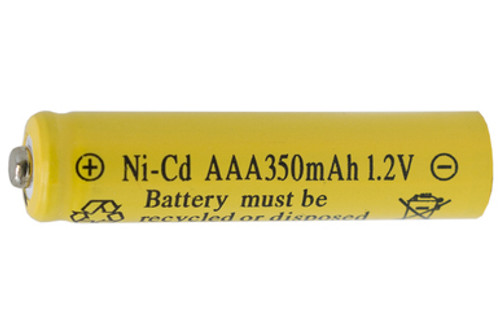
Exploring the Spectrum of Battery Chemistries
In the dynamic world of battery technology, the chemistry of a battery not only determines its suitability for specific applications but also its performance, lifespan, and environmental impact. At Only Batteries, we offer a comprehensive selection of battery chemistries tailored to meet diverse needs, ranging from daily electronics to industrial applications.
Key Battery Chemistries and Their Applications
Alkaline: Known for their reliability and long shelf life, alkaline batteries are perfect for common household devices like remote controls and wall clocks.
Nickel-Metal Hydride (NiMH): Offering reusability with fewer environmental impacts than NiCd batteries, NiMH is ideal for digital cameras and other high-drain devices.
Lithium-Ion (Li-ion): With a high energy density, Li-ion batteries are the go-to for laptops, smartphones, and increasingly, electric vehicles.
Lithium Polymer (LiPo): These batteries provide a flexible, lightweight option for modern RC devices and portable electronics.
Lead Acid: Used primarily in automotive and emergency backup systems, lead acid batteries offer high power and capacity.
Silver Oxide: Common in button cells, silver oxide batteries provide a stable output voltage and high energy density, ideal for watches and hearing aids.
Zinc-Air: Known for their high energy density, zinc-air batteries are primarily used in hearing aids.
Lithium Iron Phosphate (LiFePO4): This chemistry is gaining popularity for its safety and long cycle life, particularly in solar power installations and outdoor equipment.
Popular Products for Each Chemistry
Duracell Procell Alkaline AA: Best for everyday household devices.
Panasonic Eneloop Pro AA NiMH: High capacity and low self-discharge for frequent use.
Powerex Precharged AA NiMH: Ready to use with a long shelf life, ideal for cameras and flashlights.
Why Choose Specific Battery Chemistries
Choosing the right battery chemistry is crucial for optimizing device performance and longevity. Factors to consider include:
Device Compatibility: Ensure the battery chemistry is compatible with your device to maximize efficiency and prevent damage.
Usage Needs: High-drain devices may require batteries with a higher discharge rate, like Li-ion or NiMH.
Environmental Impact: Consider rechargeable batteries for less environmental degradation.
Budget: While some chemistries like Li-ion provide advanced features, they may be more costly than traditional alkaline batteries.
Only Batteries offers a diverse range of battery chemistries to power everything from everyday household items to high-tech gadgets and industrial machinery. Understanding the different battery chemistries helps you make an informed decision tailored to your specific needs. Whether you are looking for cost-effectiveness, performance, or environmental friendliness, we have the right battery chemistry for you.





